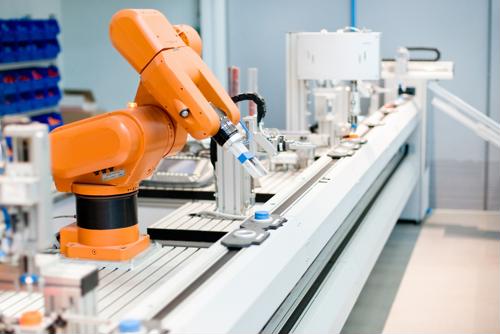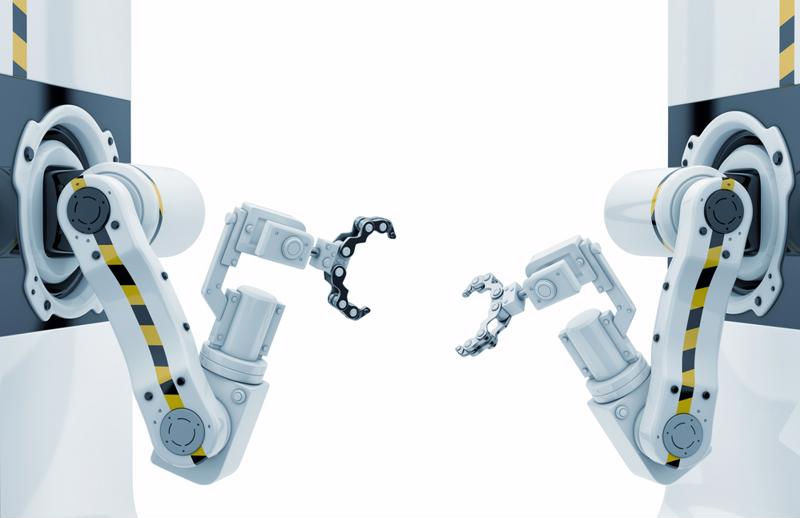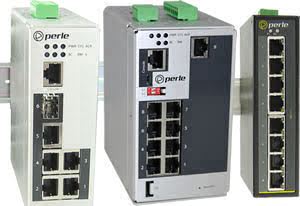
3 trends making industrial Ethernet tools essential in manufacturing
By Donna DonnowitzFebruary 10, 2016
The manufacturing industry is experiencing a wave of major changes that will likely disrupt operations over the next few years. As organizations work to prepare for and adapt to these shifts, they must ensure they have the right technology in place. Network solutions are at the center of many of the trends emerging across the manufacturing industry, and industrial Ethernet equipment plays a vital role in getting systems up to speed. Three trends that are making specialized industrial Ethernet tools essential include:
"Network solutions are at the center of many manufacturing trends."
1. Big data
Depending heavily on analytics through big data programs creates an environment in which manufacturers need to get information out to users across a wide range of operations. It isn't just the manager sitting in the office that needs analytics tools, it's also the programmer on the factory floor establishing automation and control commands and the supervisor out in the warehouse managing the supply chain. Data must be moved seamlessly between these users as they complete processes that intersect with one another.
Industrial Ethernet equipment is so important when supporting big data largely because manufacturers will be dealing with particularly massive data sets. It is one thing to move small bits of data over a wireless network to reach users outdoors or in inhospitable parts of your facility, but big data depends on groups of information that are far too large to leave to the limitations of Wi-Fi. The type of analysis happening here is complex enough to depend on large data sets and the amount of new information created as employees contribute to analytics can be huge. These factors add up to an operational environment where advanced network systems are essential.
2. The Internet of Things
The IoT, and in this case, the focus is on sensors and monitoring devices that are feeding other systems, can sometimes get by with Wi-Fi networks. A sensor reporting temperatures or other environmental conditions isn't going to be creating too much data, and it can be easier to set up a wireless system to reach these devices spread across the factory floor. However, Wi-Fi networks supporting basic machine-to-machine communications must have enough bandwidth and signal density to provide incredible reliability and performance. This means that the network will require substantial backhaul capacity to support wireless data transmission.
Building backhaul networks to support the IoT requires high-bandwidth hardware, and you can't rely on traditional Ethernet equipment to hold up to the rigors of an industrial environment. Specialized hardware is key if you want your system to withstand the unique challenges that come into play in manufacturing.

Robotics solutions are set to play a larger role in manufacturing moving forward.
3. Robotics
Plenty of manufacturers already have a feel for robotic units on the assembly line, but they can be used for much more than that. Drones can gather items in your warehouse, basic robots can clean the shop floor and advanced solutions can complete simple repair and maintenance tasks. You will need to ramp up network capacities to keep up with all of these robots on the factory floor. They depend on a connection to key control systems and to be managed remotely. As such, you can't afford to skimp on getting them the right information in a timely fashion.
On top of all this, robots can be used to empower your employees by taking care of time-consuming, menial tasks. However, they must be able to receive basic commands, software updates and similar types of data if they are going to be able to deliver on their potential. This is another burden on the wireless network (or sometimes wired systems depending on the robot), and you need to ramp up backhaul accordingly.
Industrial Ethernet switches enable you to build out the backhaul systems you need for the IoT and robotics changes happening in manufacturing while also serving as a foundation for putting big data into action.
Perle has over 516 models of Managed Industrial Ethernet Switches with the vast array of options including 10/100/1000 Ethernet, PoE, fiber and combo ports. Perle IDS Industrial-grade Ethernet Switches are ideal for the harsh environments found in industrial factory systems and outdoor applications.



